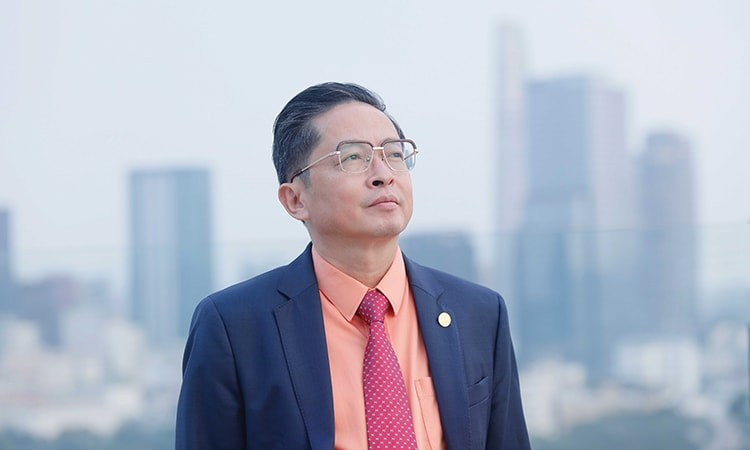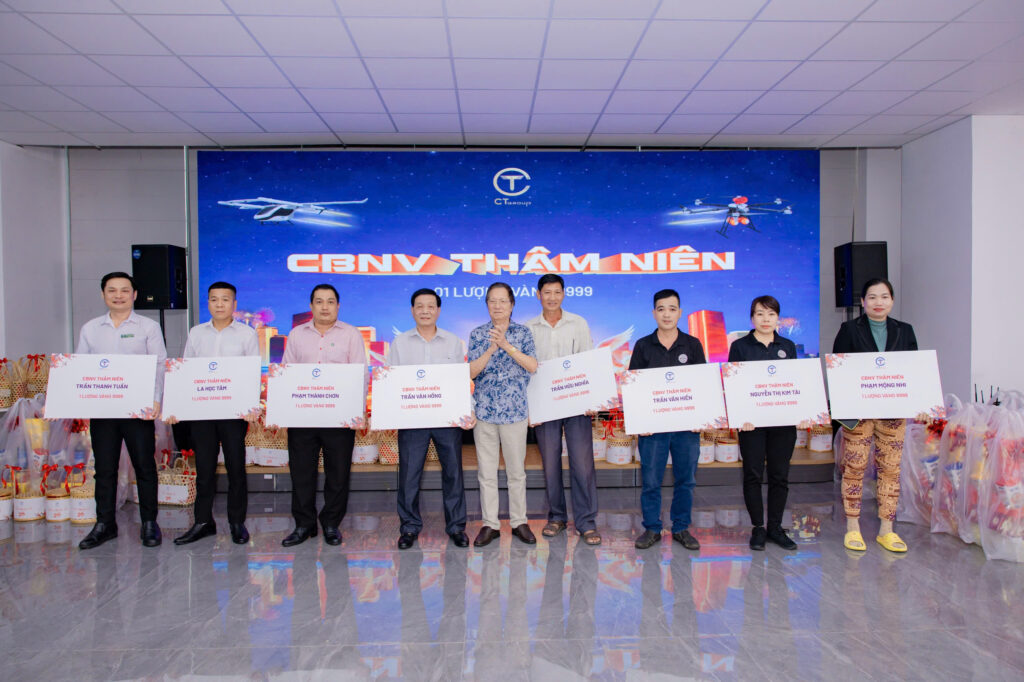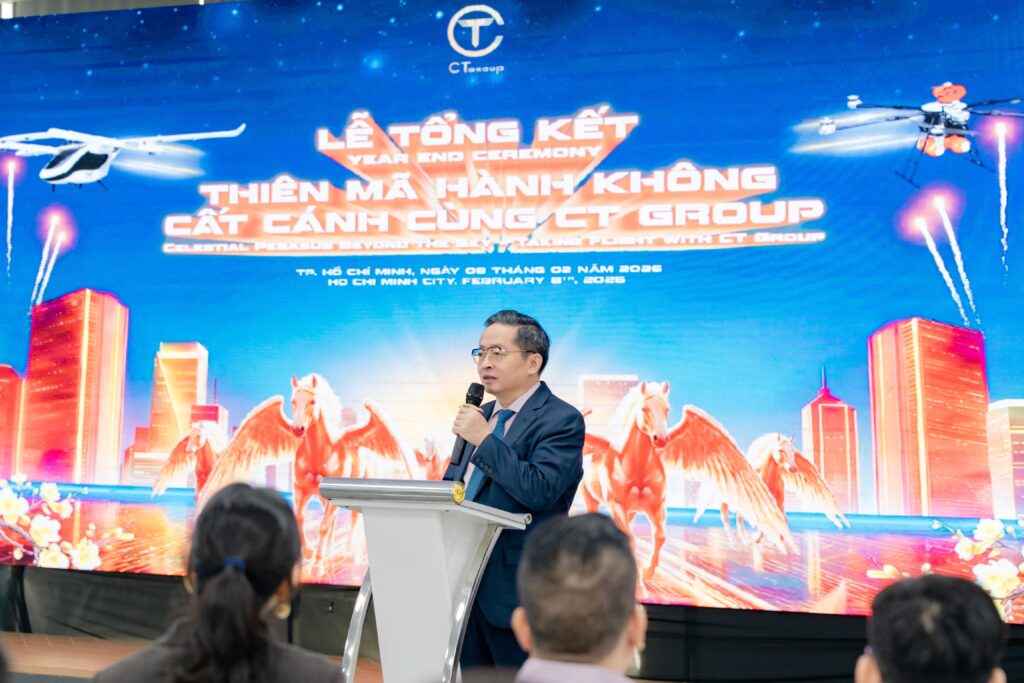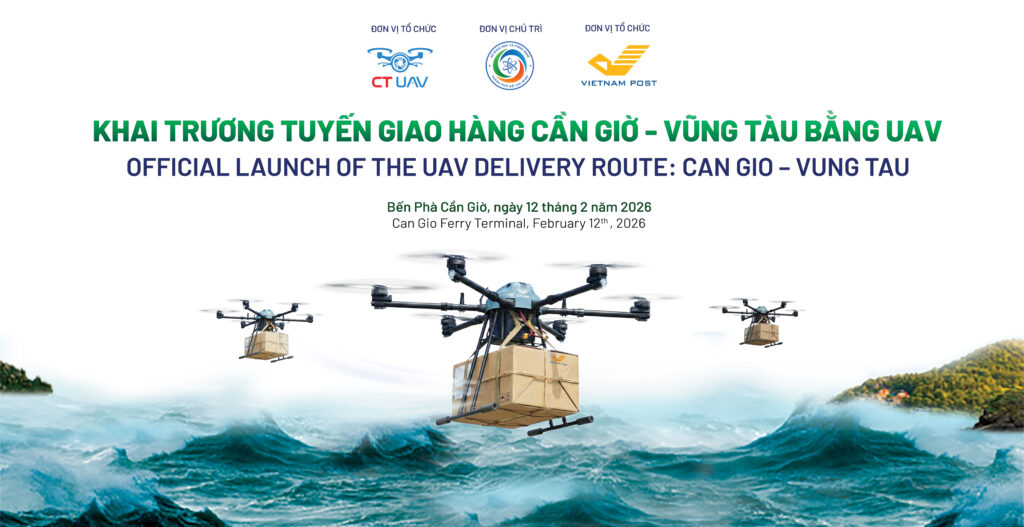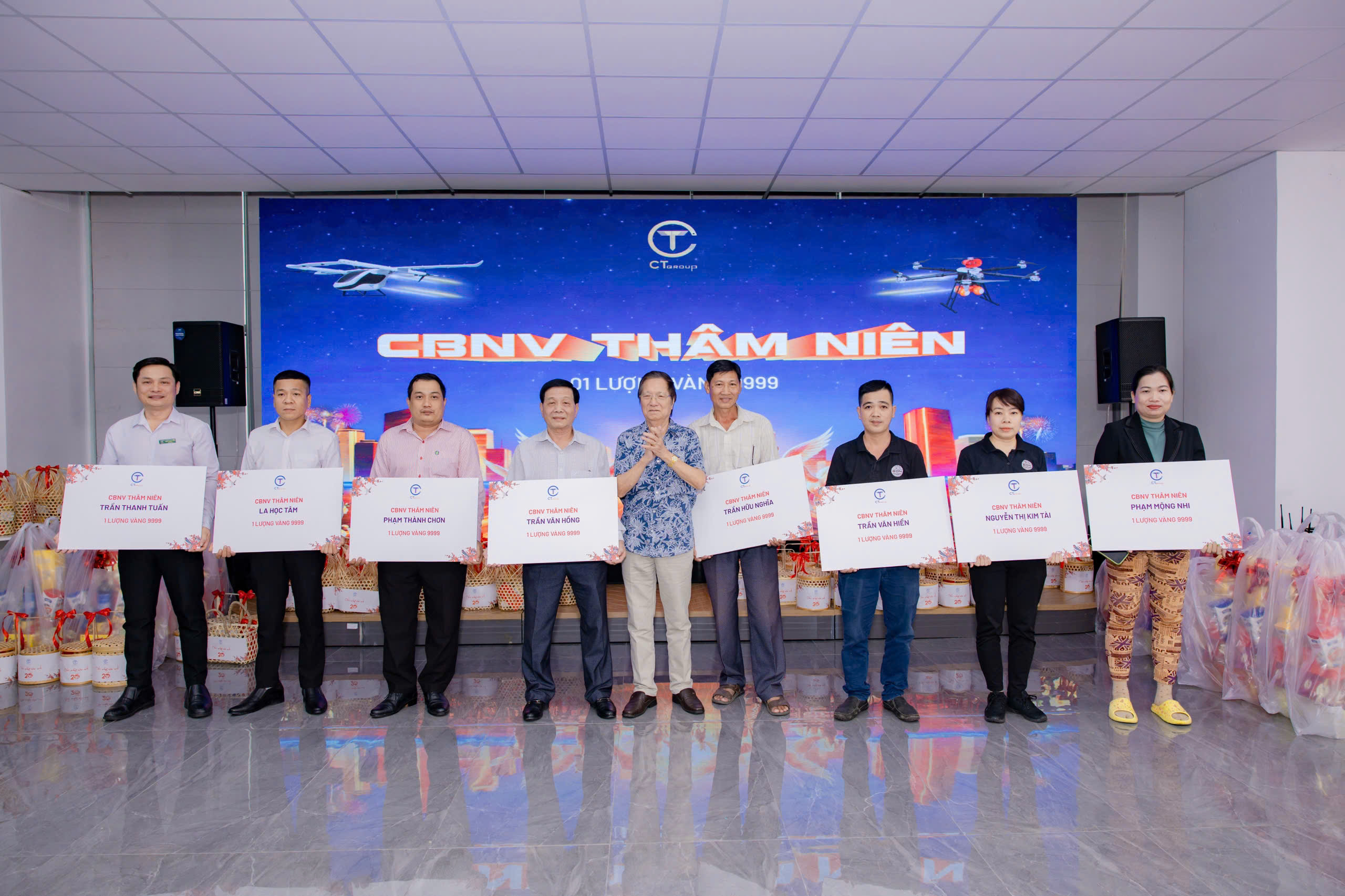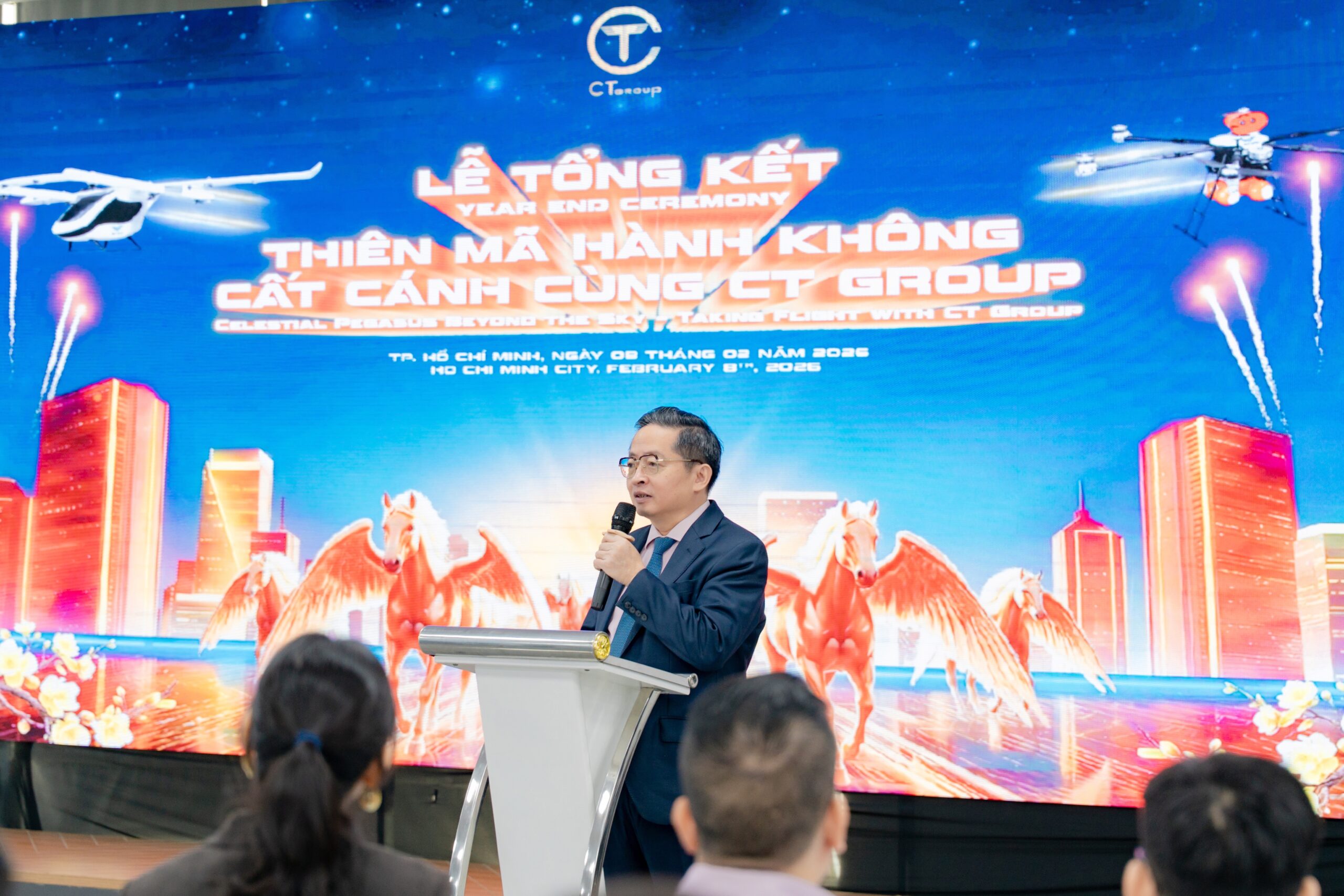The morning of July 9. 2024, Carbon Credit Trading Platform ASEAN (The member of CT Group) in collaboration with VERRA – the world’s leading prestigious certification organization for voluntary carbon offsets successfully organized the seminar “Carbon Credit: Plastics Program – Agriculture and Forestry – Water Sustainability”.
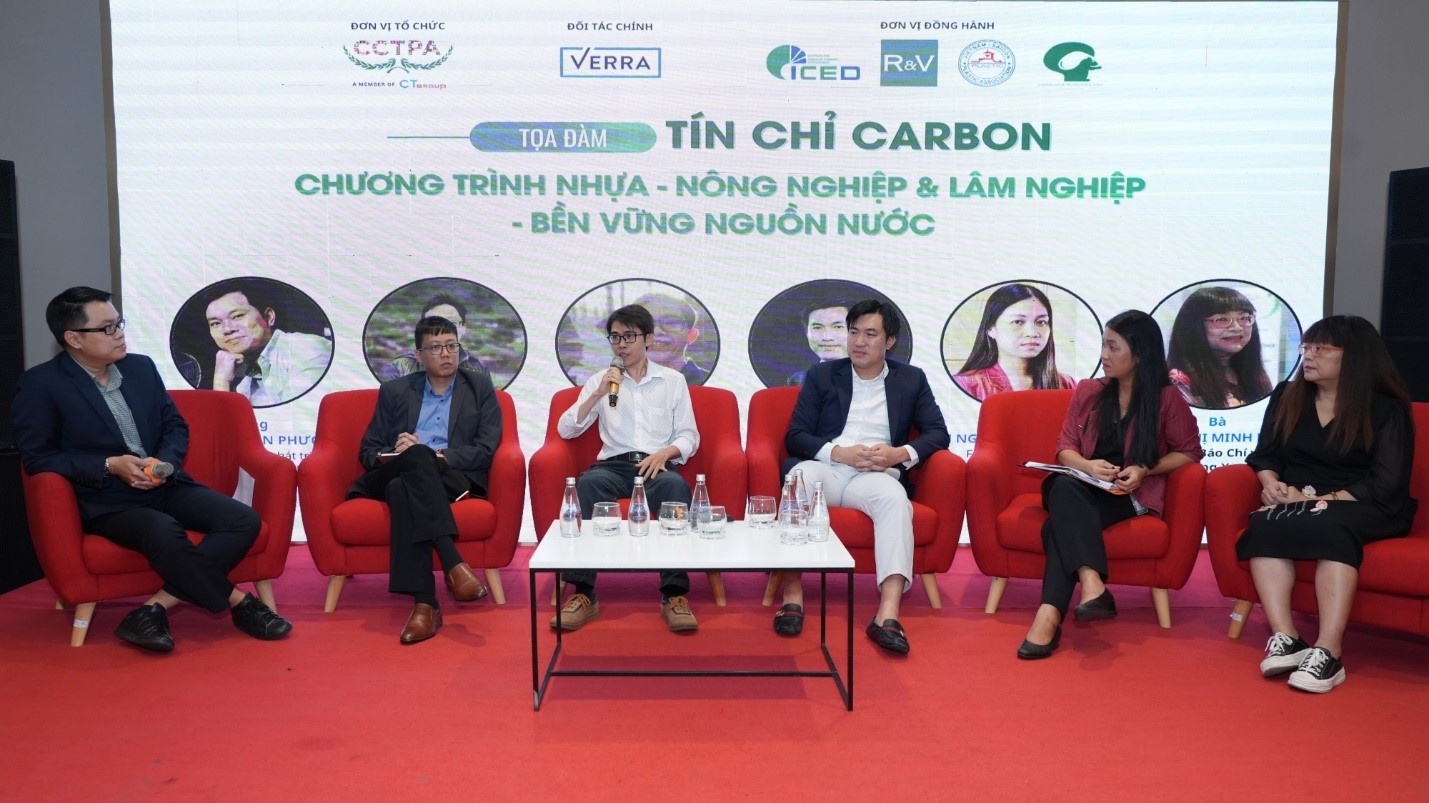
Experts, businesses, and speakers discussed at the seminar
The event attracted a large number of delegates from agencies, business associations, non-profit organizations and experts in the fields of environment, plastic waste, agriculture, forestry and water resource management…. The speakers shared the challenges of today’s hot environmental issues, and introduced breakthrough solutions that contribute to solving these problems, aiming to promote circular economic development.
Plastic circular economy – challenges and opportunities
Plastic pollution is a burning problem globally, including in Vietnam. According to statistics, each year, Vietnam generates about 1.8 million tons of plastic waste but only 27% of this is recycled. However, plastic is also an important manufacturing and supporting industry, with great potential because plastic products are applied in all areas of life. Applying circular economy to the plastics sector will bring many benefits, including reducing pollution, reducing greenhouse gas emissions and creating green livelihoods.
Currently, the traditional export markets of Vietnamese plastic enterprises are European countries, America, Japan and ASEAN. In the context of more and more markets requiring CBAM (Carbon Border Adjustment Mechanism) and sustainability reporting, the Vietnamese plastics industry needs to activate and exploit the potential of carbon credits. Participating in the carbon credit market, Vietnam’s plastic industry can both minimize environmental impact, improve competitiveness and promote circular economy.
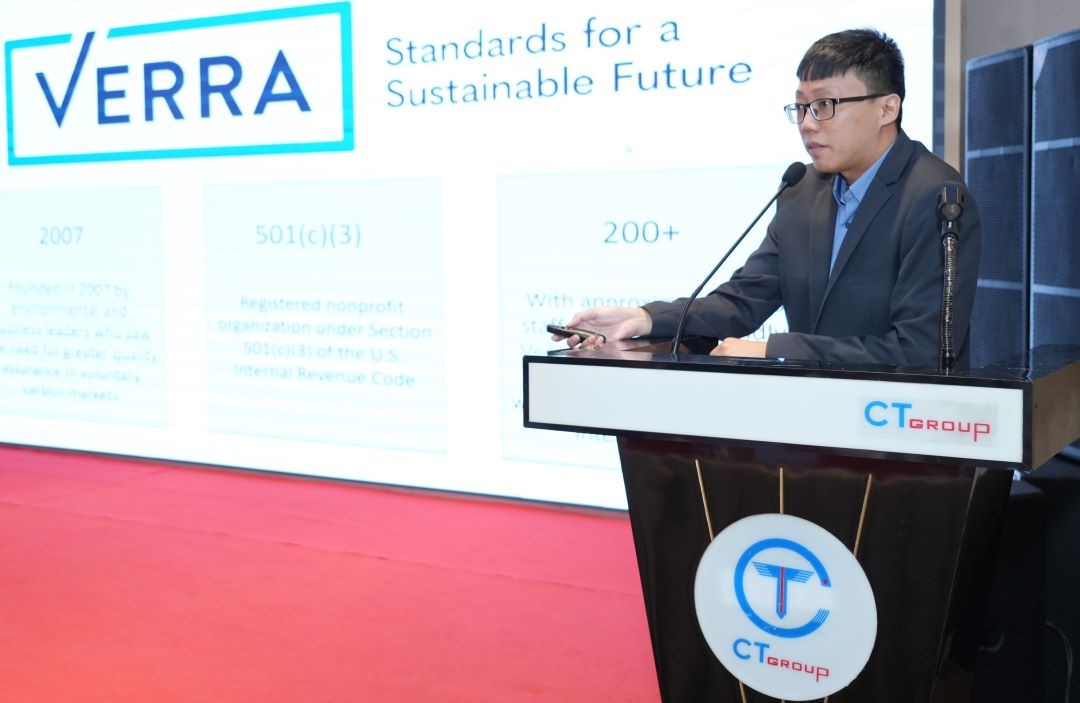
Mr. Win Sim Tan shared about the Plastic Pollution Reduction Program and carbon credits
Mr. Win Sim Tan – VERRA Chief Representative for East and Southeast Asia shared: “Plastic waste has become an important concern for companies, governments and consumers around the world. VERRA’s plastic pollution reduction program can evaluate the impact of waste collection and recycling projects. Eligible projects are awarded plastic credits. This is also an effective and powerful means of reducing plastic waste in the environment”.
In Vietnam, the Carbon Credit Trading Platform ASEAN (CCTPA) is VERRA’s first and official partner in carbon credit projects and climate change prevention programs.
Opportunities for the agriculture and forestry industry
For the agriculture and forestry sector, opportunities to participate in the carbon credit market are also extremely open. According to calculations, the agriculture sector alone can reach 57 million carbon credits per year, while the forestry sector can sell about 40 million carbon credits per year. Selling carbon credits will help forest owners and farmers improve sustainable livelihoods, while reducing greenhouse gas emissions, contributing to environmental protection and responding to climate change.
Experts say that the carbon credit trading market will become increasingly vibrant. Therefore, Vietnam’s agriculture and forestry industry needs to stay ahead of this trend to increase profits. The Mekong Delta region is considered to have great potential in this market. According to estimates by the World Bank, establishing a specialized high-quality rice growing area in the Mekong Delta can reduce 10 million tons of carbon, earning about 100 million USD. Carbon credits can be generated from forest planting, care, protection and development activities; vegetation regeneration. Or apply clean technology, technology to capture and use methane gas in farming and livestock activities…
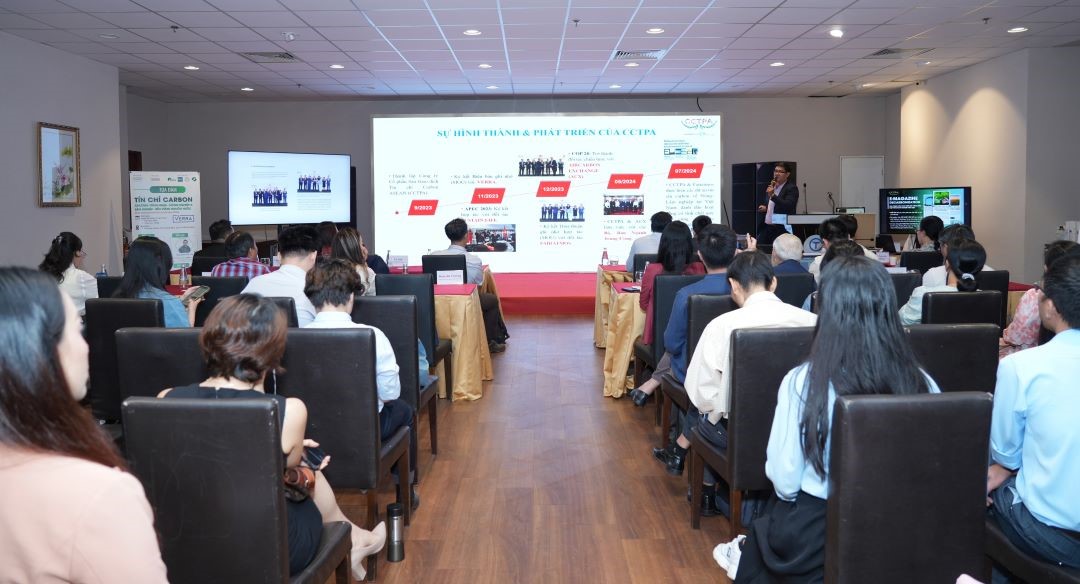
Many breakthrough solutions contribute to solving plastic waste problems, projects to create carbon credits and manage water resources… was raised at the discussion
Mr. Nguyen Vo Truong An – Deputy General Director of CCTPA shared: “CCTPA will provide complete consulting information for businesses, organizations and individuals in Vietnam on how to build carbon credit projects, how to registration, verification, certification and exchange, compensation, credit lending mechanisms for carbon credits and application of carbon taxes regionally and globally. Based on the emissions reduction target, CCTPA also advises on specific measures to reduce carbon emissions. This includes using renewable energy, optimizing production processes, and deploying clean, carbon-free technologies.” He added: “The discussion is also a long-term, non-profit activity, aiming to share knowledge about sustainable projects, not only in the manufacturing industry but also with the goal of accompanying the people of the Mekong Delta to reduce hard.”
Vietnam is a pioneer country committed to reducing carbon emissions to zero (Net Zero) by 2050. This is a commitment that demonstrates Vietnam’s responsibility to the international community, towards sustainable economic development. According to the roadmap, the Government aims to pilot the operation of the carbon credit exchange market by 2025. Therefore, businesses need to proactively adapt to new trends and should be prepared in the process of building and planning strategies to reduce emissions in each stage of production.


